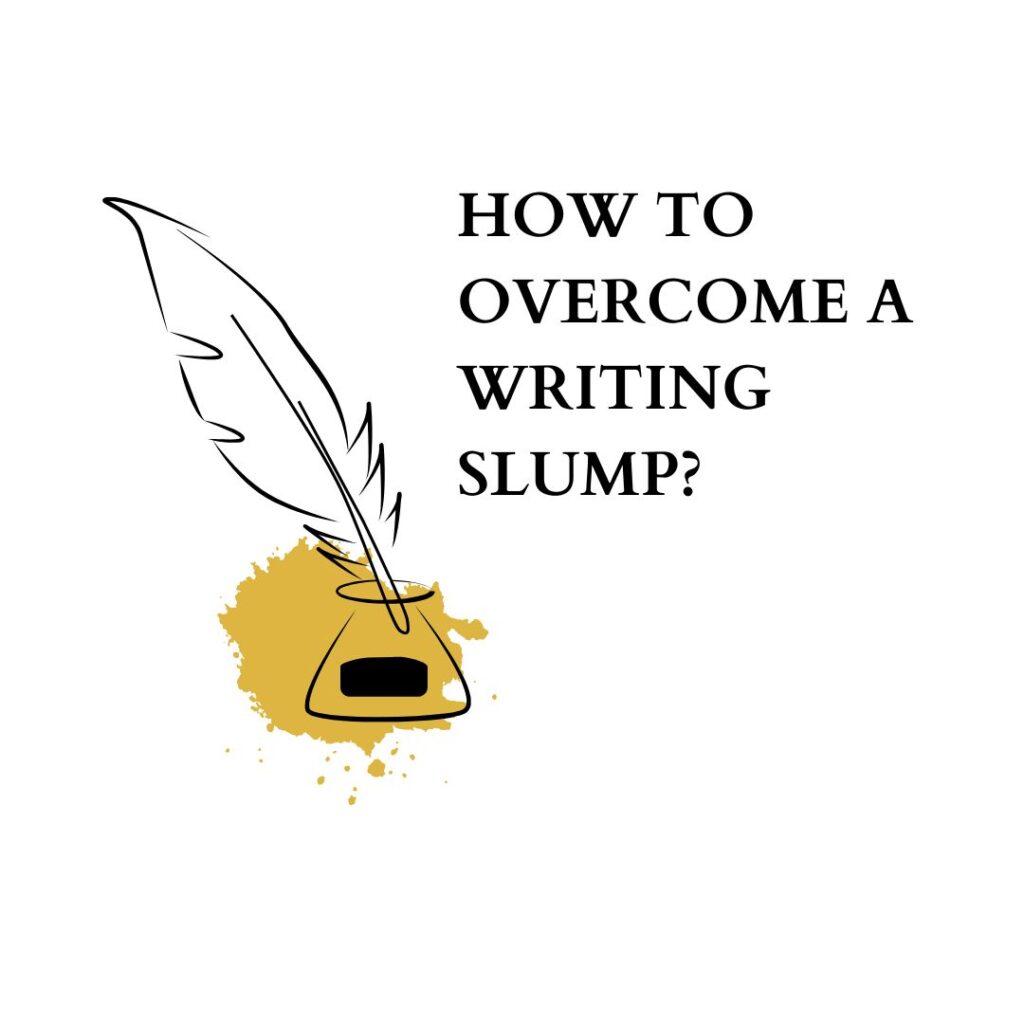How to Overcome a Writing Slump?
Every writer, regardless of experience or success, faces the dreaded writing slump at some point in their career. This period of stagnation can be frustrating and disheartening, leaving you feeling unmotivated and uninspired. However, understanding how to navigate through these slumps can empower you to reignite your creativity and get back to writing. In this comprehensive guide, we will explore effective strategies to overcome a writing slump, drawing on expert advice and practical tips.

Table of Contents
Understanding Writing Slumps
A writing slump is characterized by a lack of inspiration or motivation to write, often leading to frustration and self-doubt. It can manifest as writer’s block, where ideas seem elusive, or as a general disinterest in writing altogether.
The Emotional Toll of Writing Slumps
Writing slumps can lead to feelings of inadequacy, especially for those who identify strongly as writers. Recognizing that these periods are common can help alleviate some of the pressure and self-criticism that often accompany them.
Common Causes of Writing Slumps
Understanding the underlying causes of your writing slump can help you address it more effectively:
- Burnout: Prolonged periods of intense writing without breaks can lead to exhaustion.
- Perfectionism: The desire for perfection can create a paralyzing fear of failure.
- Life Changes: Significant life events or stressors can impact your mental state and creativity.
- Lack of Inspiration: Sometimes, external factors like the weather or personal circumstances can stifle creativity.
Strategies to Overcome a Writing Slump
Here are ten effective strategies that can help you break free from a writing slump:
Take a Break
Sometimes the best way to overcome a slump is to step away from your work for a while. Allow yourself time to recharge without the pressure to write.
- Engage in Other Activities: Spend time on hobbies or interests outside of writing.
- Practice Mindfulness: Consider meditation or yoga to clear your mind.
Freewriting
Freewriting involves setting a timer and writing continuously without worrying about grammar, structure, or coherence.
- Set a Timer: Try freewriting for five or ten minutes.
- Let Go of Expectations: Allow your thoughts to flow freely; this exercise can often lead to unexpected ideas.
Change Your Environment
A change of scenery can stimulate creativity and help break the monotony that contributes to slumps.
- Visit New Locations: Try writing in a café, park, or library.
- Redecorate Your Workspace: A fresh look at your writing space can inspire new ideas.
Set Small Goals
Breaking your writing tasks into smaller, manageable goals can make the process less overwhelming.
- Daily Word Count: Set a modest daily word count goal (e.g., 200 words).
- Focus on Specific Sections: Instead of aiming for an entire chapter, focus on completing just one paragraph or scene.
Read for Inspiration
Reading books in your genre or exploring new genres can reignite your passion for storytelling.
- Explore Different Styles: Read poetry, fiction, non-fiction, or even graphic novels.
- Analyze What You Read: Consider what you enjoy about these works and how you might incorporate similar elements into your writing.
Gather Ideas
Even if you’re not actively writing, collecting ideas is crucial during a slump.
- Idea Journal: Keep a notebook or digital document where you jot down thoughts, snippets, or random ideas.
- Mind Mapping: Create visual diagrams connecting themes, characters, or plot points related to your work.
Engage with Other Writers
Connecting with fellow writers can provide support and motivation during tough times.
- Join Writing Groups: Participate in local or online writing communities where you can share experiences and seek encouragement.
- Attend Workshops: Engage in workshops that focus on specific aspects of writing to reignite your passion.
Revisit Your Passion
Reflecting on why you started writing in the first place can help rekindle your enthusiasm.
- Review Your Previous Work: Look back at pieces that inspired you when you began your journey.
- Write About Your Journey: Consider journaling about your experiences as a writer and what brought you joy in the past.
Use Prompts and Exercises
Writing prompts and exercises are excellent tools for sparking creativity when you’re feeling stuck.
- Daily Prompts: Use websites or books that provide daily prompts to inspire new ideas.
- Creative Exercises: Engage in exercises like character sketches or plot outlines that encourage exploration without pressure.
Embrace Imperfection
Accepting that not every piece needs to be perfect can alleviate some pressure associated with writing.
- Focus on Progress Over Perfection: Remind yourself that first drafts are meant to be rough; editing comes later.
- Celebrate Small Wins: Acknowledge any progress you make, no matter how small it may seem.
Maintaining Long-Term Writing Motivation
Overcoming a writing slump is just one part of maintaining a consistent writing practice:
Establishing Routines
Creating daily or weekly routines around your writing practice can help build momentum:
- Set Regular Writing Times: Dedicate specific times each week for focused writing sessions.
- Create Rituals: Develop pre-writing rituals (like brewing coffee) that signal it’s time to write.
Staying Inspired
Continuously seek inspiration through various means:
- Follow Influential Writers: Engage with authors on social media who inspire you.
- Attend Literary Events: Participate in book readings, signings, or literary festivals for fresh perspectives.
Frequently Asked Questions (FAQs)
What are common causes of writing slumps?
Common causes of writing slumps include:
- Burnout: Prolonged periods of intense writing without breaks.
- Perfectionism: Fear of producing imperfect work.
- Life Changes: Stressors or significant events that impact mental well-being.
- Lack of Inspiration: External factors that stifle creativity.
How can I identify if I’m in a writing slump?
Signs of a writing slump may include:
- Difficulty starting or completing writing tasks.
- A lack of enthusiasm for your current project.
- Frequent distractions and procrastination.
- Feeling overwhelmed by the pressure to write.
What are some effective strategies to overcome a writing slump?
Here are several strategies to help you overcome a writing slump:
- Take a Break: Step away from your work to recharge.
- Freewriting: Write continuously for a set time without worrying about structure.
- Change Your Environment: Write in a different location to stimulate creativity.
- Set Small Goals: Break your tasks into manageable pieces.
- Read for Inspiration: Explore books or articles that spark your interest.
- Engage with Other Writers: Connect with peers for support and encouragement.
How long should I take a break during a writing slump?
The duration of a break can vary based on individual needs. It could be as short as an hour or as long as several days. The key is to allow yourself enough time to recharge without feeling guilty about not writing.
Is freewriting effective for overcoming slumps?
Yes! Freewriting can be an effective way to bypass self-censorship and generate new ideas. It encourages you to write freely without the pressure of producing polished work, which can help reignite your creativity.
Should I seek feedback from others during a slump?
Seeking feedback can be beneficial, but it’s essential to approach it thoughtfully. If you feel open to it, sharing your struggles with trusted peers can provide fresh perspectives and encouragement. However, avoid seeking feedback on unfinished work if you’re feeling particularly vulnerable.
How can I stay motivated after overcoming a slump?
To maintain motivation:
- Establish a regular writing routine.
- Set achievable goals and celebrate small victories.
- Continuously seek inspiration through reading, attending workshops, or engaging with other writers.
Can I prevent future writing slumps?
While it’s impossible to eliminate slumps entirely, you can take proactive steps to minimize their frequency:
- Maintain a balanced writing schedule that includes breaks.
- Regularly engage in activities that inspire you creatively.
- Reflect on past experiences and strategies that helped you overcome previous slumps.
What if my writing slump lasts for an extended period?
If your slump persists despite trying various strategies, consider seeking professional support from a therapist or counselor. They can help address underlying issues such as anxiety or depression that may be affecting your creativity.
Conclusion
Writing slumps are an inevitable part of the creative process that every writer encounters at some point in their journey. By implementing strategies such as taking breaks, freewriting, changing environments, setting small goals, reading for inspiration, gathering ideas, engaging with other writers, revisiting your passion, using prompts, and embracing imperfection, you can effectively overcome these challenging periods. Remember that every writer has faced slumps; what matters is how you respond to them. With patience and persistence, you will find your way back to the joy of writing and rediscover the creative spark that fuels your passion for storytelling! Embrace the journey ahead—your next great idea may be just around the corner!
Discover marketing services, interviews & publishing tools at SharingStories.




